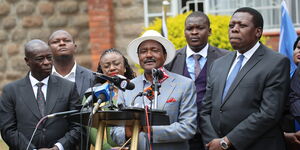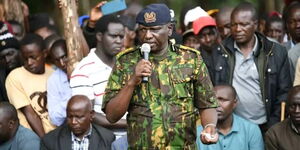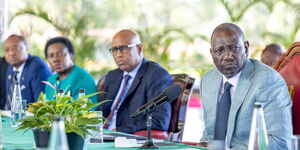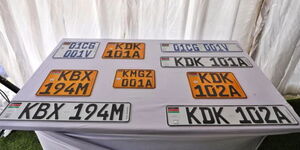The Independent Electoral and Boundaries Commission (IEBC) on Thursday revealed some intrigues on how they arrived at a Ksh61 billion budget estimate for the upcoming 2027 elections.
The commission's legal director, Crispin Owiye, explained that the exorbitant budget was largely because of political tensions and distrust in the country.
Speaking during the mid-cycle review of the status of electoral reforms towards the 2027 General Elections, Owiye explained how trust (or lack thereof), inflated the budget saying, "On the cost of elections, the Commission presented a budget of KSh 61 billion. The budget is high because of the trust deficit among Kenyans."
He added, "We have a ballot paper that has seven security features. In order to have those features, there must be a cost attached to it."
The lawyer then explained that while Kenya had the capability of producing reliable election material, distrust from political factions in the country necessitated the need to outsource ballot papers from international contractors - a considerably costlier move.
"In procuring that ballot paper, no political formation will agree to a proposal to print that ballot paper in the country. They insist on international tender which the cost is very high."
Moreover, Owiye further broke down the Ksh3.82 billion allocations for transportation needs, including procurement and hiring of vehicles. According to the senior lawyer, this budget was high because political factions were unwilling to have the commission engage the government for transportation resources.
"We asked to use government vehicles to transport election materials, but our request was declined by political factions," he observed. "They said we cannot trust the executive because it could lead to rigging of elections. I want to say it as it was. That means we have to procure our own vehicles."
Owiyo further admitted that seeking private transportation services put the IEBC at a disadvantage because private contractors realize the commission is desperate to facilitate a free and fair election, leading to a hike in the price of services such as the hiring of vehicles.
Ideally, there should be an IEBC vehicle in each polling station across the country in the run-up and during the elections.
Other costs the commission highlighted in their budget estimate include approximately KSh 7.04 billion for the acquisition of 45,000 new KIEMS kits which are crucial for biometric voter identification and verification.
IEBC also plans to allocate KSh 15.6 billion for the remuneration of election officials in a figure that encompasses the hiring and training of over 500,000 temporary staff. Owiye noted that this massive human resource demand is unavoidable since no one "is willing to work for free out of patriotism".












